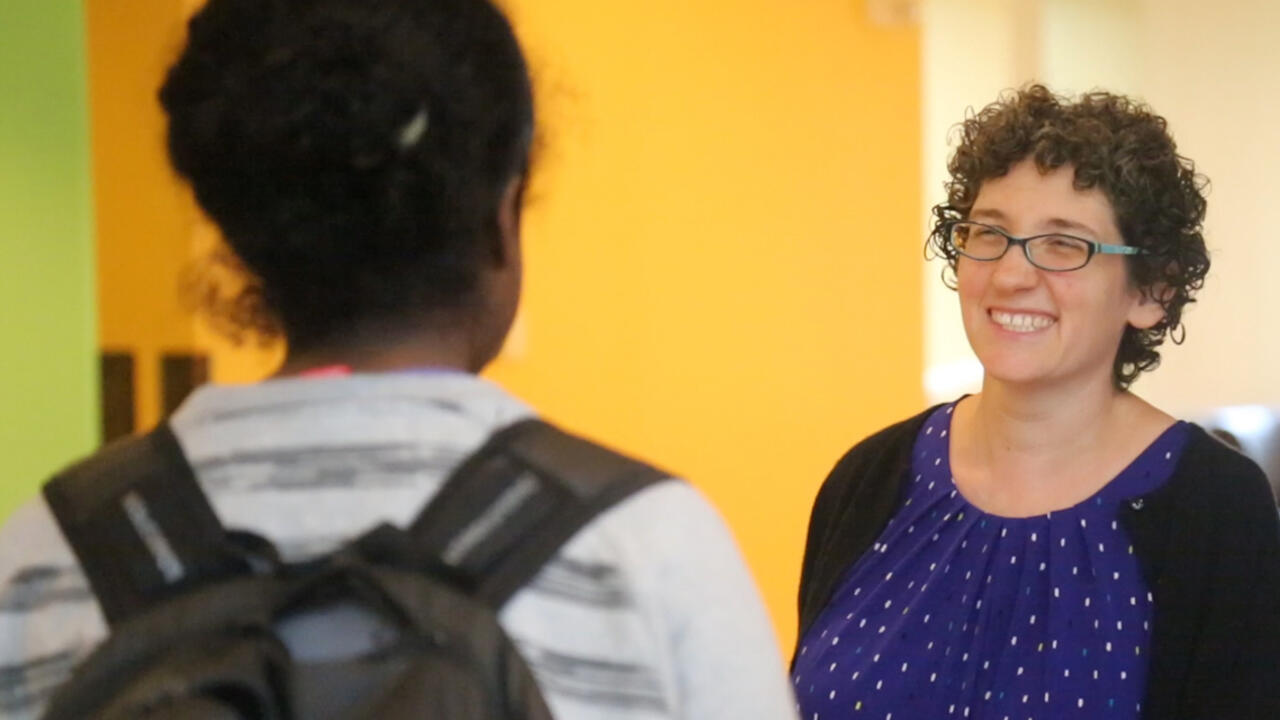Wellesley Welcomes New Campus Rabbi and Jewish Chaplain

Rabbi Dena Bodian, Wellesley’s Jewish chaplain and campus rabbi, is all about creating community through meaningful conversations on campus and across the country. The Daily Shot spoke with the newest member of the Office of Religious and Spiritual Life staff about her impressions of Wellesley so far, and how her own experiences in college motivate her to “not create Jewish life for students, but with them.”
Q: What drew you to Wellesley?
Dena Bodian: As a graduate of Bryn Mawr College, the prospect of being back on a college similar to (but not) my alma mater was very appealing. I love the small community feel, the intellectual rigor, and the time and space to really talk and think deeply about things. Getting to work with the amazing team at ORSL was a big draw as well.
Q: What role did faith play in your college experience? How will you use your own experiences to serve students here?
Bodian: When I was in college, I was on the board of the Jewish Student Union, but unlike many schools, mine did not have a chaplaincy or Hillel structure, so religious life was entirely student-run. We did everything from cooking Shabbat dinner to leading services every week. The first time I ever ran a Passover seder was in college, and it meant doing everything from creating our own haggadah, to cooking the meal, to actually leading the seder.
That model of student empowerment was a really formative one for me, and having an inside view at a young age of how Jewish community is created and cultivated was a major part of my decision to attend rabbinical school.
One of the nicest things about working at a small liberal arts college is that students have a great deal of leeway to make Jewish life what they want it to be, and activities are very much driven by students’ passions.
Q: As a past president of the National Association of College and University Chaplains, you have a wide perspective on student needs and the influence chaplains have on the well-being of a college community. How do you hope to connect with the students here at Wellesley?
Bodian: One of the best parts of my experience in NACUC was developing close relationships with colleagues all over the country. I really appreciated having a national cohort of folks to whom I could turn with difficult questions, who I knew would understand the dynamics of campus life and might have had similar situations on their own campuses.
One of the things I’ve come to learn through that experience is that, to some extent, our role in building religious life on college campuses requires cultivating colleague relationships with students: You don’t create Jewish life for students, but with them, and building those connections and empowering students to create the communities and experiences they want to see has been one of the most rewarding parts of my career.
Q: You have been a part of the Wellesley community for about three months now. What are your impressions? What are you most excited about as you settle into your position?
Bodian: I am really enjoying many things about Wellesley—the magnificent campus, the colleagues, but I have to say, the students are absolutely incredible! I’ve had some amazing conversations already with students, and have really valued the level of intellectual engagement and earnestness students here carry out of the classroom and into their everyday lives.
I’ve started a weekly lunch and text study group, and it’s been fantastically rewarding. I’m so looking forward to introducing students to more of my favorite texts—and getting to experience new ones with them!
Q: What is one thing you want the community to know about you?
Bodian: I attended rabbinical school at the Hebrew Seminary of the Deaf in Skokie, Ill. There, I was blessed to study with classmates and faculty from across the Jewish community. The school trained rabbis for Deaf as well as hearing congregations, but more importantly, it taught us all how to listen: how to come together across age, gender, racial, and denominational lines, and how to learn from each other. That background has served me very well on college campuses, where understanding, appreciating, and cultivating a diverse community is critical.



